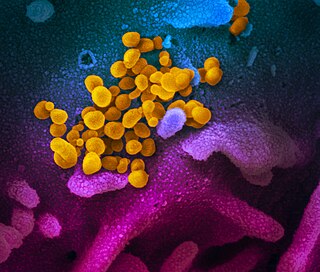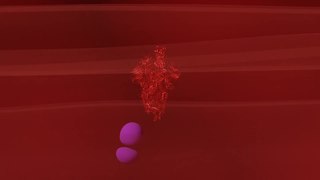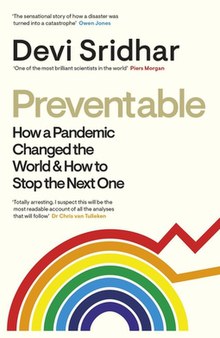
A vaccine is a biological preparation that provides active acquired immunity to a particular infectious or malignant disease. The safety and effectiveness of vaccines has been widely studied and verified. A vaccine typically contains an agent that resembles a disease-causing microorganism and is often made from weakened or killed forms of the microbe, its toxins, or one of its surface proteins. The agent stimulates the body's immune system to recognize the agent as a threat, destroy it, and recognize further and destroy any of the microorganisms associated with that agent that it may encounter in the future.

Healthcare in Europe is provided through a wide range of different systems run at individual national levels. Most European countries have a system of tightly regulated, competing private health insurance companies, with government subsidies available for citizens who cannot afford coverage. Many European countries offer their citizens a European Health Insurance Card which, on a reciprocal basis, provides insurance for emergency medical treatment insurance when visiting other participating European countries.
Big Pharma conspiracy theories are conspiracy theories which claim that pharmaceutical companies, especially large corporations, act in sinister and secretive ways, such as concealing effective treatments, or even intentionally causing and worsening a wide range of diseases, in pursuit of profitability, or for other nefarious reasons. Some theories have included the claim that natural alternative remedies to health problems are being suppressed, the claim that drugs for the treatment of HIV/AIDS are ineffective and harmful, the claim that a cure for all cancers has been discovered but hidden from the public, claims that COVID-19 vaccines are ineffective, and that alternative cures are available for COVID-19. In most cases the conspiracy theorists have blamed pharmaceutical companies' search for profits. A range of authors have shown these claims to be false, though some of these authors nevertheless maintain that other criticisms of the pharmaceutical industry are legitimate.

Disease X is a placeholder name that was adopted by the World Health Organization (WHO) in February 2018 on their shortlist of blueprint priority diseases to represent a hypothetical, unknown pathogen that could cause a future epidemic. The WHO adopted the placeholder name to ensure that their planning was sufficiently flexible to adapt to an unknown pathogen. Director of the US National Institute of Allergy and Infectious Diseases Anthony Fauci stated that the concept of Disease X would encourage WHO projects to focus their research efforts on entire classes of viruses, instead of just individual strains, thus improving WHO capability to respond to unforeseen strains. In 2020, experts, including some of the WHO's own expert advisors, speculated that COVID-19, caused by the SARS-CoV-2 virus strain, met the requirements to be the first Disease X.

Devi Lalita Sridhar FRSE is an American public health researcher, who is both professor and chair of global public health at the University of Edinburgh, Scotland. Her research considers the effectiveness of public health interventions and how to improve developmental assistance for health. Sridhar directs the University of Edinburgh's Global Health Governance Programme which she established in 2014.

The COVID-19 pandemic, also known as the coronavirus pandemic, is a global pandemic of coronavirus disease 2019 (COVID-19) caused by severe acute respiratory syndrome coronavirus 2 (SARS-CoV-2). The novel virus was first identified in an outbreak in the Chinese city of Wuhan in December 2019. Attempts to contain it there failed, allowing the virus to spread to other areas of Asia and then worldwide in early 2020. The World Health Organization (WHO) declared the outbreak a public health emergency of international concern (PHEIC) on 30 January 2020. The WHO ended its PHEIC declaration on 5 May 2023. As of 29 November 2023, the pandemic had caused 772,165,753 cases and 6,981,250 confirmed deaths, ranking it fifth in the list of the deadliest epidemics and pandemics in history.

Richard Hatchett is an American oncologist and epidemiologist who has been serving as chief executive officer of the Coalition for Epidemic Preparedness Innovations (CEPI) in Oslo and London since 2017. He was awarded the Secretary of Health and Human Services's Award for Distinguished Service.

A COVID‑19 vaccine is a vaccine intended to provide acquired immunity against severe acute respiratory syndrome coronavirus 2 (SARS-CoV-2), the virus that causes coronavirus disease 2019 (COVID‑19).

Bonnie J. Fraser Henry is a Canadian physician and public servant who has been the provincial health officer at the British Columbia Ministry of Health since 2014. Henry is also a clinical associate professor at the University of British Columbia. She is a specialist in public health and preventive medicine, and is a family doctor. In her role as provincial health officer, Henry notably led the response to COVID-19 in British Columbia (BC).

The COVID-19 pandemic has affected many scientific and technical institutions globally, resulting in lower productivity in a number of fields and programs. However, the impact of the pandemic has also led to the opening of several new research funding lines for government agencies around the world.

The World Health Organization (WHO) is a leading organisation involved in the global coordination for mitigating the COVID-19 pandemic within the broader United Nations response to the pandemic.
Science diplomacy is the collaborative efforts by local and global entities to solve global issues using science and technology as a base. In science diplomacy, collaboration takes place to advance science but science can also be used to facilitate diplomatic relations. This allows even conflicting nations to come together through science to find solutions to global issues. Global organizations, researchers, public health officials, countries, government officials, and clinicians have previously worked together to create effective measures of infection control and subsequent treatment. They continue to do so through sharing of resources, research data, ideas, and by putting into effect laws and regulations that can further advance scientific research. Without the collaborative efforts of such entities, the world would not have the vaccines and treatments we now possess for diseases that were once considered deadly such as tuberculosis, tetanus, polio, influenza, etc. Historically, science diplomacy has proved successful in diseases such as SARS, Ebola, Zika and continues to be relevant during the COVID-19 pandemic today.

Part of managing an infectious disease outbreak is trying to delay and decrease the epidemic peak, known as flattening the epidemic curve. This decreases the risk of health services being overwhelmed and provides more time for vaccines and treatments to be developed. Non-pharmaceutical interventions that may manage the outbreak include personal preventive measures such as hand hygiene, wearing face masks, and self-quarantine; community measures aimed at physical distancing such as closing schools and cancelling mass gathering events; community engagement to encourage acceptance and participation in such interventions; as well as environmental measures such surface cleaning. It has also been suggested that improving ventilation and managing exposure duration can reduce transmission.
A nasal vaccine is a vaccine administered through the nose that stimulates an immune response without an injection. It induces immunity through the inner surface of the nose, a surface that naturally comes in contact with many airborne microbes. Nasal vaccines are emerging as an alternative to injectable vaccines because they do not use needles and can be introduced through the mucosal route. Nasal vaccines can be delivered through nasal sprays to prevent respiratory infections, such as influenza.

The COVID-19 pandemic has created and popularized many terms relating to disease and videoconferencing.

During the worldwide COVID-19 pandemic, many people began to spread false or un-confirmed data and information. This included politicians and other government officials from administrations in several countries. Misinformation about the virus includes its origin, how it spreads, and methods of preventing and curing the disease. Some downplayed the threat of the pandemic, and made false statements about preventative measures, death rates and testing within their own countries. Some have also spread COVID-19 vaccine misinformation. Changing policies also created confusion and contributed to the spread of misinformation. For example, the World Health Organization (WHO) originally discouraged use of face masks by the general public in early 2020, advising "If you are healthy, you only need to wear a mask if you are taking care of a person with suspected 2019-nCoV infection," although the WHO later changed their advice to encourage public wearing of face masks.

The impact of the COVID-19 pandemic on Native American tribes and tribal communities has been severe and has emphasized underlying inequalities in Native American communities compared to the majority of the American population. The pandemic exacerbated existing healthcare and other economic and social disparities between Native Americans and other racial and ethnic groups in the United States. Along with black Americans, Latinos, and Pacific Islanders, the death rate in Native Americans due to COVID-19 was twice that of white and Asian Americans, with Native Americans having the highest mortality rate of all racial and ethnic groups nationwide. As of January 5, 2021, the mortality impact in Native American populations from COVID-19 was 1 in 595 or 168.4 deaths in 100,000, compared to 1 in 1,030 for white Americans and 1 in 1,670 for Asian Americans. Prior to the pandemic, Native Americans were already at a higher risk for infectious disease and mortality than any other group in the United States.

Failures of State: The Inside Story of Britain's Battle with Coronavirus is a 2021 book by George Arbuthnott and Jonathan Calvert about the COVID-19 pandemic in the United Kingdom. The book is adapted from Calvert and Arbuthnott's reporting on the pandemic for The Sunday Times. It focuses on responses of the British government and National Health Service to the onset of the pandemic.
Media coverage of the COVID-19 pandemic includes reporting on the deaths of anti-vaccine advocates from COVID-19 as a phenomenon occurring during the COVID-19 pandemic. The media also reported on various websites documenting such deaths, with some outlets questioning whether this practice was overly unsympathetic. Reports noted phenomena including "deathbed conversions", in which vaccine opponents reportedly changed their minds and began encouraging vaccination before dying, with these claims meeting continued skepticism by vaccination opponents; and on groups of deaths within specific demographics, such as anti-vaccine radio hosts.

Zero-COVID, also known as COVID-Zero and "Find, Test, Trace, Isolate, and Support" (FTTIS), was a public health policy implemented by some countries, especially China, during the COVID-19 pandemic. In contrast to the living with COVID-19 strategy, the zero-COVID strategy was one "of control and maximum suppression." It involved using public health measures such as contact tracing, mass testing, border quarantine, lockdowns, and mitigation software in order to stop community transmission of COVID-19 as soon as it was detected. The goal of the strategy was to get the area back to zero new infections and resume normal economic and social activities.












